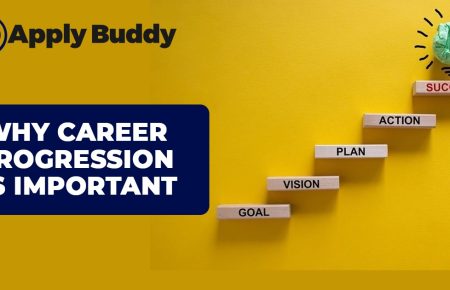Preparing for a business analyst interview requires understanding the diverse range of questions you might face.
From behavioral and technical queries to situational and industry-specific scenarios, each question type is designed to evaluate different aspects of your skills and experience.
In this article, we will cover the most commonly asked interview questions for business analysts, along with strategic tips for crafting effective responses.
Whether you’re a seasoned professional or new to the field, mastering these questions will help you showcase your expertise, problem-solving abilities, and industry knowledge, positioning you for success in your next interview.

Common Business Analyst Interview Questions
Common business analyst interview questions are designed to evaluate your fundamental understanding of the BA role, your ability to analyze and interpret data, and your experience with different business processes. These questions typically include:
- Tell me about your experience with business analysis
This question assesses your overall background and expertise in the field, highlighting your ability to manage and analyze business processes effectively.
- How do you prioritize requirements in a project?
This evaluates your method for handling multiple priorities and ensuring that critical business needs are met promptly.
- Can you describe a challenging project you worked on and how you handled it?
This seeks insight into your problem-solving skills and your approach to overcoming obstacles in project management.
Behavioral Questions
Behavioral questions in business analyst interviews are designed to uncover how you’ve handled various situations in your past roles. These questions focus on your experiences, problem-solving abilities, and interpersonal skills, providing insight into how you approach challenges and collaborate with others. Here are some behavioral questions with answers:
- Tell me about a time when you had to deal with a difficult stakeholder. How did you handle it?
Answer: In a previous role, a key stakeholder was resistant to a proposed change. I scheduled a one-on-one meeting to understand their concerns and provided data to address their objections. By involving them in the decision-making process, I was able to gain their support and ensure the project’s success.
- Describe a situation where you had to analyze complex data to make a recommendation.
Answer: I once analyzed sales data to identify trends affecting performance. By using data visualization tools, I uncovered patterns that led to actionable insights, such as targeted marketing strategies that improved sales by 15% over the next quarter.
- Give an example of how you managed a tight deadline.
Answer: During a major system upgrade, I had a tight deadline to gather requirements. I created a detailed project plan, assigned tasks to team members, and held daily check-ins to ensure progress. As a result, we met the deadline without compromising on quality.
- Tell me about a time when you had to make a difficult decision.
Answer: When faced with choosing between two conflicting project priorities, I evaluated the impact of each on the business objectives and consulted with key stakeholders. I decided to focus on the project that aligned more closely with strategic goals, which ultimately led to greater overall benefits.
- Describe a situation where you had to work with a team to achieve a goal.
Answer: In a cross-functional team project, I coordinated with developers, testers, and business users to launch a new CRM system. Through regular communication and collaborative problem-solving, we successfully delivered the system on time and improved user satisfaction by 20%.

How to Effectively Respond Using the STAR method
The STAR method is a structured approach to answering behavioral interview questions. It stands for Situation, Task, Action, and Result. Begin by describing the Situation and Task you faced, then explain the specific Actions you took to address the challenge. Finally, outline the Result of your actions. This method helps provide clear, concise, and relevant examples of your skills and problem-solving abilities.
- Situation: Describe the context within which you performed a task or faced a challenge.
- Task: Explain the actual task or challenge you encountered.
- Action: Detail the specific actions you took to address the task or challenge.
- Result: Share the outcomes of your actions, highlighting any positive impacts or achievements.
This method helps you provide clear, concise, and structured answers that demonstrate your competencies effectively.
Technical Questions
Technical questions in business analyst interviews assess your knowledge of tools, methodologies, and technical concepts essential for the role.
These questions evaluate your ability to handle specific technical challenges, understand complex systems, and apply analytical techniques effectively. By demonstrating your proficiency with relevant software, data analysis methods, and industry practices, you can showcase your technical competence and problem-solving skills, which are crucial for successful performance as a business analyst.
Here are five typical technical questions and their answers:
- What is the difference between functional and non-functional requirements?
Answer: Functional requirements define what a system should do (e.g., user login capabilities), while non-functional requirements specify how the system performs these functions (e.g., system response time or security measures).
- Can you explain what a use case is and provide an example?
Answer: A use case describes a system’s functionality from an end-user perspective. For example, a use case for an online shopping system might be “Place Order,” detailing steps like selecting items, adding them to the cart, and completing the purchase.
- How do you handle changes in project scope?
Answer: I handle scope changes by assessing their impact on the project, discussing them with stakeholders, and updating the project plan accordingly. I ensure changes are documented and approved to avoid scope creep.
- What tools do you use for data analysis and why?
Answer: I use tools like Microsoft Excel for data manipulation and visualization, SQL for querying databases, and Tableau for creating interactive dashboards. Each tool is chosen based on the complexity and requirements of the data analysis task.
- How do you ensure requirements are accurately gathered and documented?
Answer: I use techniques such as interviews, surveys, and workshops to gather requirements. I then document them using clear, unambiguous language and validate them with stakeholders to ensure accuracy and completeness.
How to Prepare And Respond To Technical Queries
Preparing for and responding to technical queries involves a thorough understanding of key concepts, tools, and methodologies relevant to business analysis. To excel, review fundamental principles, practice with real-world scenarios, and stay updated on industry trends.
During the interview, provide clear, structured answers, and use practical examples to demonstrate your technical expertise. This approach ensures you can effectively showcase your skills and problem-solving abilities.
To prepare for technical questions:
- Review Key Concepts: Brush up on fundamental business analysis concepts, tools, and methodologies.
- Practice with Real Scenarios: Work through case studies or sample questions to apply your knowledge.
- Stay Updated: Be aware of the latest trends and tools in business analysis.
- Be Clear and Concise: Provide straightforward explanations and avoid jargon.
Situational Questions
Situational questions in business analyst interviews explore how you would handle hypothetical scenarios related to your role. These questions assess your problem-solving skills, decision-making process, and ability to manage complex situations.
By presenting well-thought-out responses, you demonstrate your capacity to apply your analytical skills to various challenges, ensuring that you can effectively navigate the dynamic and often unpredictable nature of business environments.
Here are some situational questions with answers:
- How would you handle a situation where a key requirement is missing after project initiation?
Answer: I would first assess the impact of the missing requirement on the project. Then, I would consult with stakeholders to gather the requirements and incorporate them into the project plan, ensuring minimal disruption to the timeline and deliverables.
- What steps would you take if you discovered that a project is not meeting its goals?
Answer: I would analyze the project’s performance metrics, identify the root causes of the issues, and discuss the findings with the team. Based on the analysis, I would recommend corrective actions and adjust the project plan to address the issues and realign with the goals.
- How would you manage conflicting priorities from different stakeholders?
Answer: I would engage with each stakeholder to understand their priorities and the reasons behind them. I would then evaluate the impact of each priority on the overall project and facilitate a discussion to reach a consensus or compromise that aligns with strategic objectives.
- How would you approach a situation where team members are not collaborating effectively?
Answer: I would identify the root causes of the collaboration issues, such as communication barriers or unclear roles. I would then organize team-building activities, clarify roles and responsibilities, and encourage open communication to improve collaboration and team dynamics.
- What would you do if you encountered resistance to a proposed change in a project?
Answer: I would address the resistance by understanding the concerns of those affected and providing data or evidence to demonstrate the benefits of the change. I would also involve stakeholders in the change process to gain their support and address any issues proactively.
Strategies for Showcasing Problem-solving Skills
Showcasing your problem-solving skills effectively during an interview involves demonstrating your ability to tackle complex issues with a structured approach.
- Highlight Relevant Examples: One of the most compelling ways to showcase your problem-solving skills is by sharing specific examples from your past experiences. Choose instances where you successfully identified and resolved significant issues, emphasizing the complexity of the challenge.
- Explain Your Process: Detail the systematic approach you took to address the issue. Start by explaining how you identified the problem, the data or insights you gathered, and how you analyzed the information.
- Emphasize Critical Thinking and Creativity: Problem-solving often requires a blend of critical thinking and creativity. Highlight how you applied these skills in your examples. For instance, discuss how you challenged assumptions, explored unconventional solutions, or innovatively adapted strategies to overcome obstacles. Demonstrating your ability to think outside the box and apply creative solutions showcases your versatility and capacity to handle unexpected challenges.
- Showcase Positive Outcomes: Ensure you emphasize the results of your problem-solving efforts. Discuss the measurable outcomes of your solutions, such as improved performance metrics, cost savings, or enhanced team efficiency.
Industry-Specific Questions
Industry-specific questions in business analyst interviews are tailored to assess your expertise and experience within a particular sector. These questions focus on your understanding of industry trends, regulatory requirements, and unique challenges.
Some Industry specific questions are:
- Finance Industry: How do you ensure compliance with financial regulations in a project?
Answer: I stay updated on relevant financial regulations and integrate compliance checks into the project plan. I collaborate with legal and compliance teams to ensure all requirements are met and document compliance measures throughout the project lifecycle.
- Healthcare Industry: Can you describe how you would handle the implementation of a new healthcare software system?
Answer: I would start by conducting a needs assessment to understand the requirements of healthcare professionals. I would then work with stakeholders to ensure the software meets regulatory standards and train users to ensure a smooth transition and adoption of the new system.
How to Prepare For Industry-Related Scenarios
Preparing for industry-related scenarios involves gaining a deep understanding of sector-specific trends, challenges, and regulations. By understanding the unique context of the industry, you can effectively address related questions and demonstrate your ability to apply business analysis skills in a way that aligns with industry-specific requirements and expectations.
- Research Industry Trends: Stay informed about current trends and challenges in your target industry.
- Understand Regulatory Requirements: Be aware of relevant regulations and compliance issues specific to the industry.
- Network with Industry Professionals: Engage with professionals in the field to gain insights and advice on industry-specific practices.
Questions to Ask the Interviewer
Asking insightful questions during an interview demonstrates your genuine interest in the role and helps you assess the company’s fit for your career goals. Inquire about team dynamics, project challenges, and company culture to gain a clearer understanding of the position and show that you are actively engaged in the interview process
Consider asking: What are the biggest challenges currently facing the team or department?

APPLY BUDDY
Are you overwhelmed with a busy schedule but eager to advance your career? Our Apply Buddy services will help!
We take the hassle out of job applications by managing the process for you. Our expert team will handle resume updates, craft compelling cover letters, and submit applications to your desired positions, all while you focus on your current responsibilities. With our personalized support, you can stay on top of your job search without sacrificing your valuable time.
Conclusion
In conclusion, preparing for a business analyst interview involves a thorough understanding of various question types, including behavioral, technical, situational, and industry-specific queries. By using structured methods like the STAR technique for behavioral questions, showcasing your technical expertise, and demonstrating your problem-solving skills, you can effectively convey your suitability for the role. Additionally, researching industry-specific scenarios and preparing thoughtful questions for the interviewer can enhance your overall performance. With careful preparation and a clear presentation of your skills and experiences, you can position yourself as a strong candidate and increase your chances of success in securing the role.
FAQs for Interview Questions Business Analyst
- What are some examples of behavioral questions for Business Analysts?
Examples include questions about handling difficult stakeholders, managing tight deadlines, or resolving project issues. These questions explore your past experiences and how they relate to the role. - How can you prepare for technical questions in a Business Analyst interview?
Review key concepts and tools, practice with sample questions, and stay updated on industry trends to prepare effectively. - What should you focus on when answering situational questions?
Focus on how you approach and resolve hypothetical scenarios, demonstrating your problem-solving skills and decision-making process. - What are some insightful questions to ask the interviewer?
Ask about team challenges, success metrics, or company goals to show your interest and gain a deeper understanding of the role and organization.





